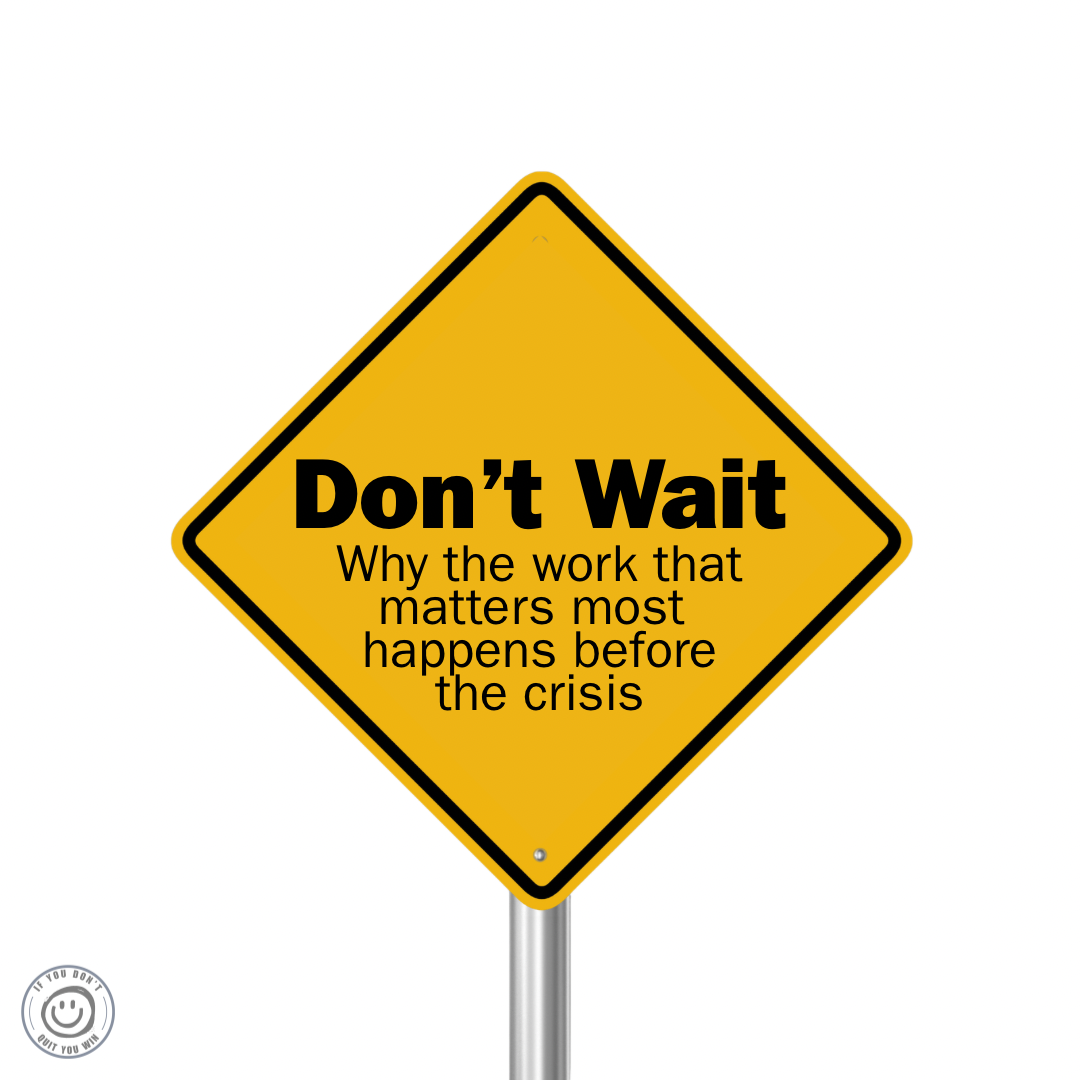
Don’t Wait. Why the work that matters most happens before the crisis
Panic is a terrible builder.
Don’t wait until the storm to start laying a foundation.

Before the Countdown: A Conversation Every Parent Should Have With Their Teen
New Year’s Eve is full of noise, expectations, and emotion—especially for teenagers.
Before the countdown begins, there’s an opportunity most parents don’t want to miss: a simple conversation that builds connection, trust, and safety.
This isn’t about resolutions or lectures. It’s about being present long enough to listen.

Image Management Is Killing Our Kids
A honest call to parents: our kids mirror what we model. In a curated world, they need our authenticity, courage, and guidance more than ever.

Keep Your Jingle. I’ll Take Peace.
It’s November, which apparently means it’s already Christmas.
The pumpkins aren’t even cold yet, and somehow every store in America smells like cinnamon and consumer debt. Inflatable Santas are up, Mariah Carey has defrosted, and we’ve collectively agreed that peppermint-flavored everything will fix our mood.
Except it doesn’…

Talking About Mental Health Isn’t Enough Anymore & Here’s What Works
Why bringing in trained, trusted voices matters more than ever.
It usually happens after.
After the suicide note.
After the call from the school counselor.
After a friend breaks down or a parent finds the scars.
That’s when people call us; schools, churches, parents, companies; in shock, trying to figure out what they missed.
But what we’ve learned, over decades in this work, is that talking about mental health after crisis is too late. The time to start the conversation is before someone breaks.

Parenting in the Age of Anxiety: Why “Take It as It Comes” No Longer Works
I’ve spent three decades working with kids and their parents, and I can tell you without hesitation, there’s been a seismic shift. Parenting today is nothing like it was twenty or thirty years ago. The ground has moved beneath our feet, and a lot of parents haven’t realized it yet.

Clichés Are Crap: How “Stay Positive” Became the Worst Advice on the Internet
Positivity isn’t bad, but pretending you’re fine is. Real resilience starts when you stop faking it.
Let’s be honest, motivation online is a mess.

Don’t Hand Your Kids Over to the Algorithm
We are living in deeply divisive times, politically, socially, relationally. Everyone feels it. But the part that often gets overlooked is how much of this division is engineered. Most of us, yes, even the most self-aware adults, are being shaped by algorithms.

3 Real Things You Can Do TODAY to Help Your Kid Be More Resilient
Anxiety is up. Confidence is down. And somewhere along the line, resilience—the ability to take a hit and get back up—started getting replaced with fragility.
But here’s the good news: resilience isn’t something you’re born with. It’s built. And it’s never too late to start.

SELF-HARMING: WHAT PARENTS SHOULD DO RIGHT NOW (and later today, tomorrow, and next week)
This guide is designed to help you move forward with calm, clarity, and compassion—because the more informed you are, the more steady you can be.
You don’t need to have all the answers.
You just need to take the next right step.

Just Show Up
I’ve been thinking a lot lately about how different my life could have been.
How close I was to not being here.
How none of this — the people I’ve loved, the places I’ve gone, the battles I’ve fought — would have ever happened if someone hadn’t stepped in at just the right time.
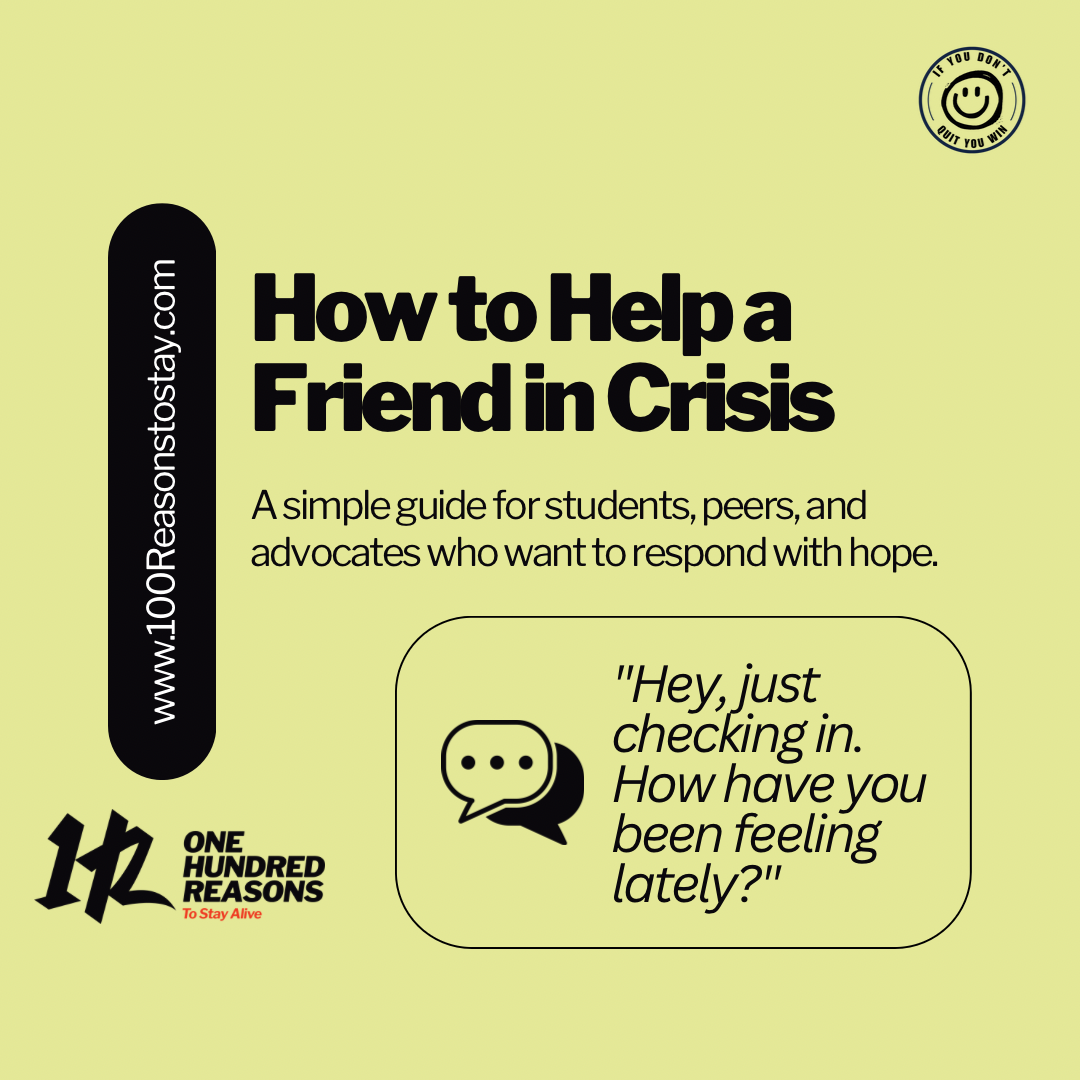
How to Help a Friend in Crisis
A simple guide for students, peers, and advocates who want to respond with hope.

Every Man Needs a Battle
So what’s your battle?
What’s the thing worth bleeding for?
What’s your reason to stay alive?
Find it.
Then give it everything you’ve got.

Don’t Say You Care If You Won’t Carry It
Real advocacy costs something. If your compassion never moves, it might not be compassion at all.
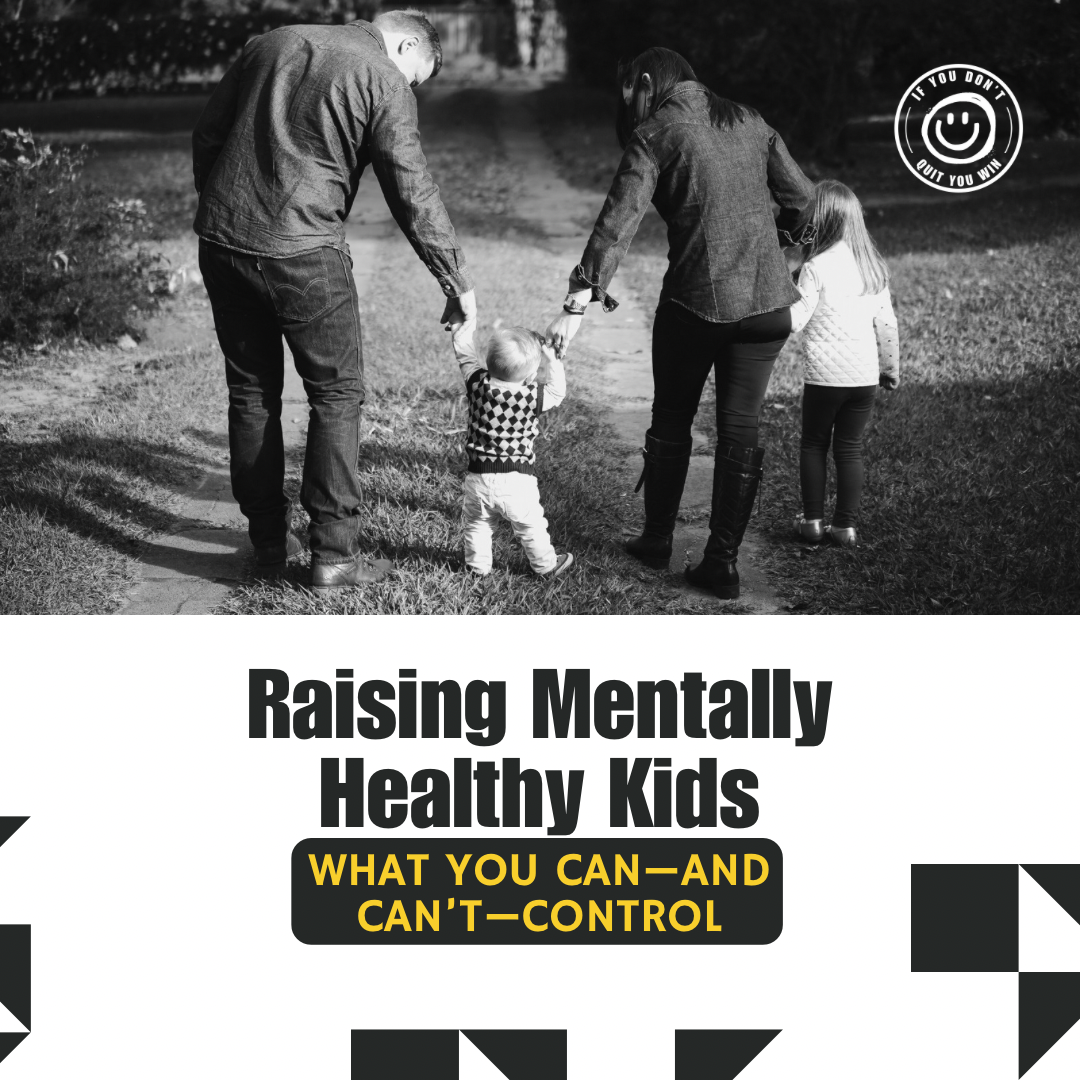
Raising Mentally Healthy Kids: What You Can—and Can’t—Control
There are some things in parenting you can’t control.
You can’t control the genetic hand your child has been dealt. Some kids are born with a predisposition to anxiety, depression, or other mental health struggles. That’s not your fault. But there’s something you can control—the environment you create. And that? That changes everything.

How You Can Make a Difference in the Fight Against Suicide
Suicide is one of the most heartbreaking crises of our time. It’s the second leading cause of death among teens and young adults, claiming thousands of lives every year. But here’s the good news: you can help. You don’t need a degree in psychology or a big platform to make a difference. What you need is a compassionate heart and a willingness to take action.
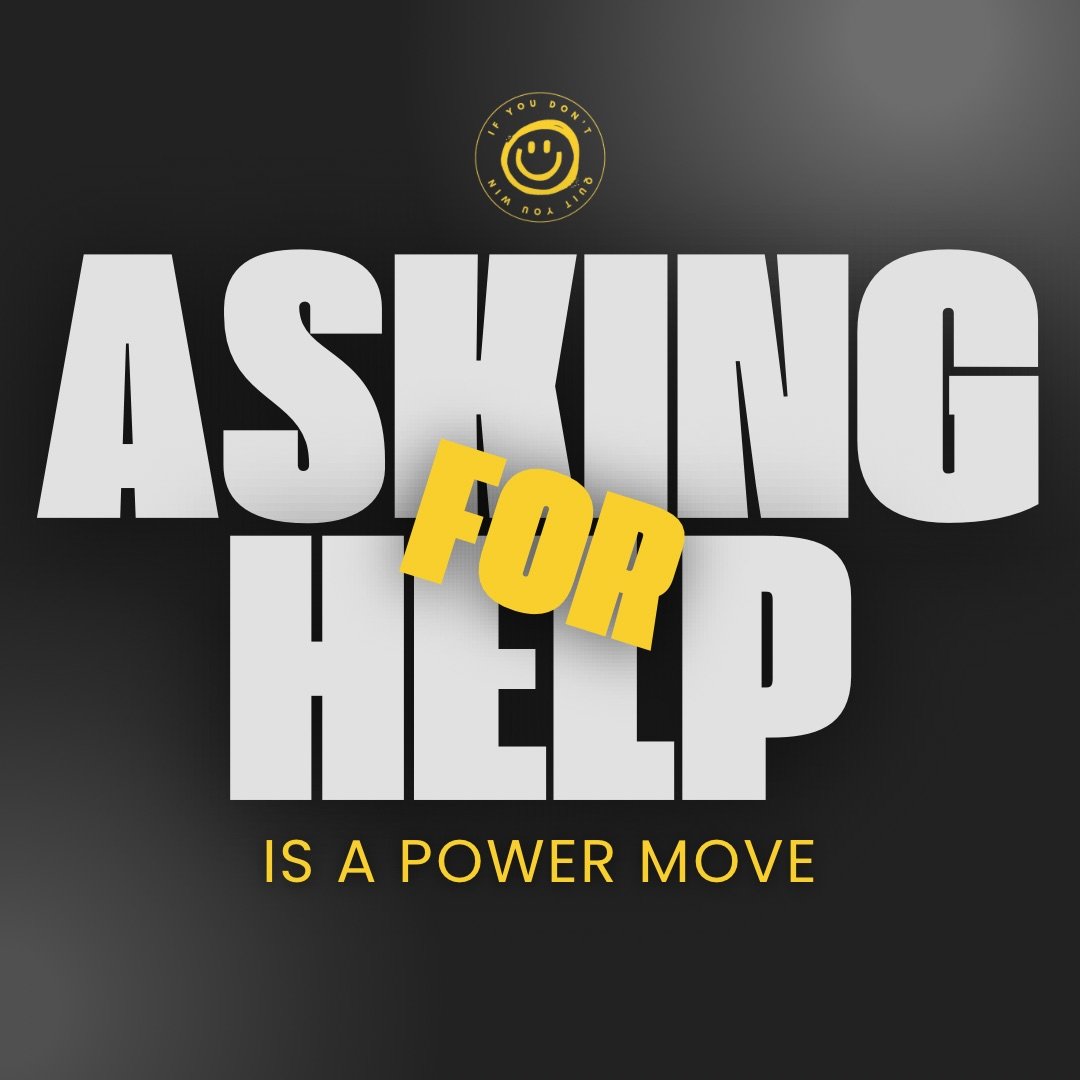
Asking for Help is a Power Move
Life gets hard—like, punch-you-in-the-face hard. And for some reason, when the hits keep coming, society has convinced us to suffer in silence. We’re supposed to be strong, to “push through,” to keep posting those filtered wins like nothing’s wrong. News flash: Nobody’s winning all the time. (Sorry, Ludacris, Rick Ross, and Snoop, but you’re full of shit on this one.)

Navigating the Holidays as a Single Parent: Grace for the Journey
The holidays can be hard. For single parents, they can feel like a minefield of emotions—joy, grief, loneliness, and everything in between. If that’s you, I want to take a moment to say: I see you.

You Don’t Have to Have All the Answers to Be Part of the Solution
What kind of person do you want to be?
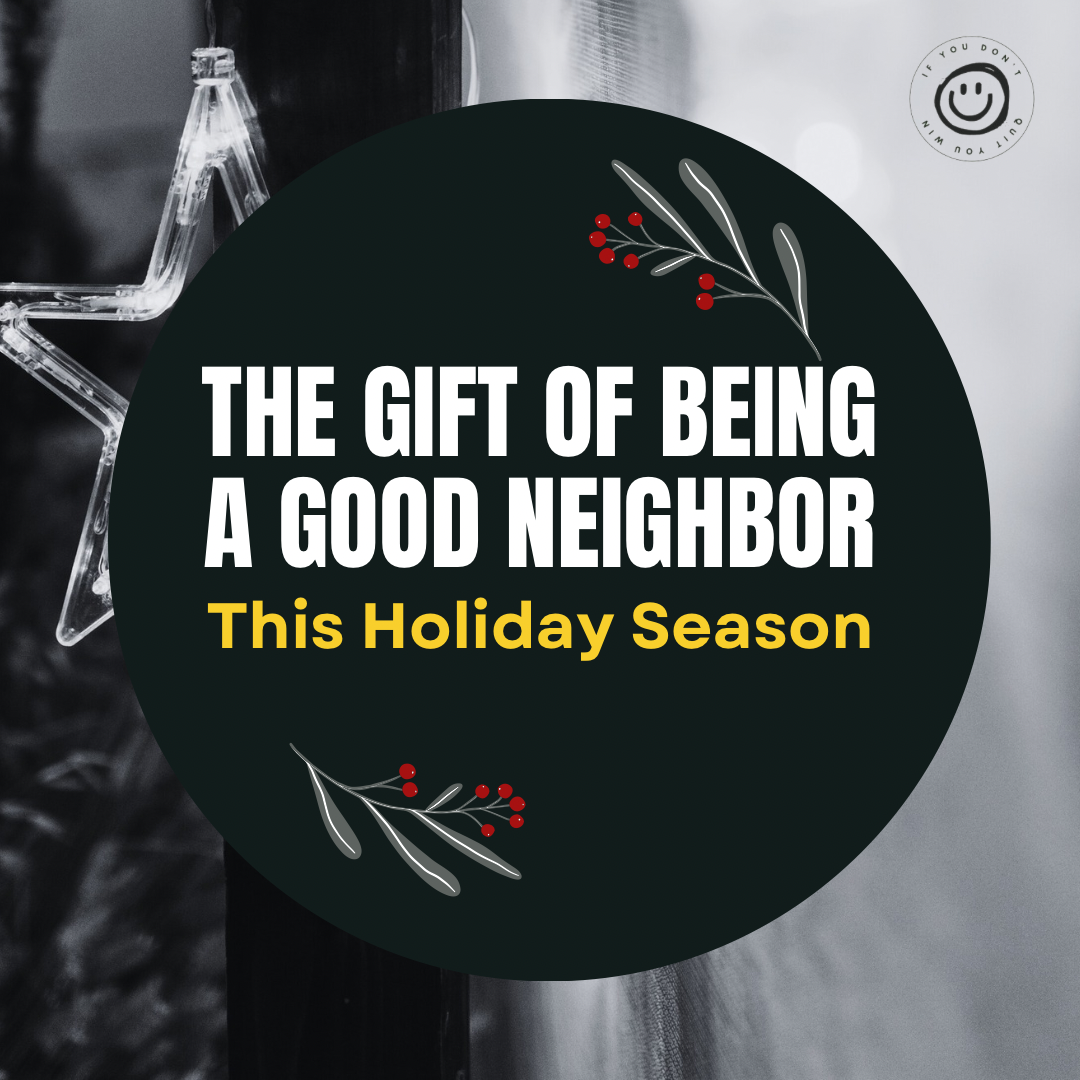
The Gift of Being a Good Neighbor This Holiday Season
As the holidays approach—Thanksgiving only about 21 days away and Christmas following close behind—we’re surrounded by messages about this being “the most wonderful time of the year.” Many look forward to celebrations filled with family, food, gifts, and the comfort of loved ones. But for some, this season is anything but wonderful.
Breaking the Stigma
The Hayden Hurst Story
Make a donation.
It is estimated that 48.6% of students between the ages of 10-24 experience a mental health crisis. It is additionally estimated that 60% of these effected go uncared for in anyway. It is our belief that this happens when the natural result of mental illness or crisis is isolation, because it is misunderstood or stigmatized. The second leading cause of death in this age group is suicide and it is actually the number one cause of death among 14 & 15 year old American teens.
If you don’t quit you win is led by successful professionals who are willing to share their compelling stories and experiences helping these champions believe that Mental Illness does not mean you can not be successful in every area of your life.
Your generous support allows us to fulfill our 4 step process:
Motivating young people through school assemblies and seminars
Mentoring young people through weekly phone calls with our approved mentors and monthly online huddles with other young people of similar interests facing the same challenges. Monitored and led by one of our adult coaches.
Partnering with parents to support family plans and strategies to build champion successful young people with or without mental illness.
Resourcing School Administrators, Teachers and Coaches with seminars on how to support and motivate this large demographic as well as weekly support materials.


